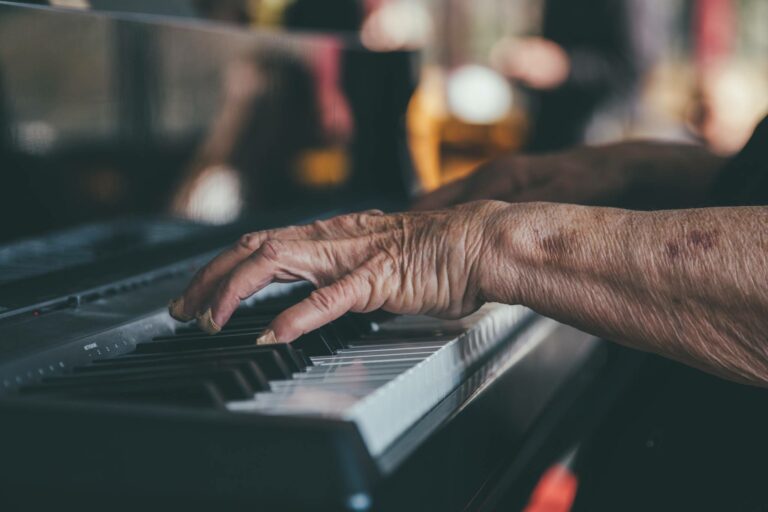Alzheimer’s Dementia and Sleep Apnea: Do You Need Testing?

Now I Lay Me Down to Sleep…And Snore, Snort, and Gasp. We spend approximately 1/3 of our lives in sleep but know so little about it, especially in individuals with Alzheimer’s dementia or cognitive loss. I’ve been thinking about sleep quite a bit lately, as age-related changes are altering my sleep. I do not take kindly to this sleep disruption as, for most of my life, I was one of the fortunate who could hit the pillow and not give wakefulness another thought until eight blissful hours later.
Sleep apnea
I think sleep and changes in sleep could fill several blogs (and most likely will) but today I’d like to focus on symptoms of snoring, day-time fatigue, irritability, lack of concentration, headache and slowed thinking that may be caused by sleep apnea.
Sleep apnea is a common condition that occurs with increasing age. Sleep apnea is the slowing or stopping of breathing during sleep from an obstruction (eg. lax throat muscles) or poor signal from the brain (less common – may be due to some medications and other conditions) that then causes an abrupt awakening to restore breathing. The awakening is not remembered or registered by the “sleeper”, but loud snoring, snorting, choking or gasping may be noticed by a bed partner. The episodes may occur many to hundreds of times per hour. There are factors (increased age, obesity, being a man, use of alcohol or sedatives near bedtime) that signal increased risk for having sleep apnea, but risk factors may not be present and the condition can only be diagnosed by a sleep test.
Sleep Apnea and Memory Disorders
The importance of sleep apnea is in its repercussions. Sleep apnea increases the risk of several health conditions including high blood pressure, stroke, heart disease, arrhythmias AND cognitive impairment or dementia. A study by Yaffe and colleagues 1 tested the sleep of 300 women WITHOUT dementia and followed them for 4.5 years; 200 had normal sleep and 100 had sleep apnea. The women with sleep apnea were 2x more likely to have mild cognitive impairment or dementia at the end of the study. Similar results are available from a large study of men 2.
Is there a way to treat sleep apnea?
Once someone has been diagnosed with sleep apnea (see below – Evaluation for sleep apnea), there is an effective treatment.
Continuous positive airway pressure (CPAP) is a therapy provides air through a machine and mask at a greater pressure than room air. This increased pressure keeps the tissues in the nose and back of the throat open so that air can pass freely, eliminating the apnea spells. There is ample evidence this treatment is effective, but studies on those with dementia are limited. Yet, though the studies are few – the evidence is convincing. Studies reveal memory is improved within 3 months of using CPAP 3 and the improvements are sustained at one year 4. I heard in my office, from colleague and the public, that individuals with Alzheimer’s dementia could never tolerate the use of the mask and pressured air – but this is a myth! Individuals with mild-moderate Alzheimer’s dementia are able to tolerate CPAP 5.
What can be done to tolerate this effective treatment?
- Commit to CPAP since it is so effective – when you know that the treatment can slow cognitive decline and improve your mental function – without side effects! – it becomes easier to commit.
- Make sure the mask is the right one for you – it may take many visits and persistence to get the mask to fit well. Some of my patients have complained that it took so many visits to get the diagnosis; they are annoyed by the visits to get the mask to fit well. Don’t give up at this point – now is the time to put the extra time in the get the right fit.
- Go slow in getting used to the mask – wear it during the daytime without the machine, so that you adapt to the feel of the mask before connecting to the machine.
- Go slow in getting used to the mask and machine connection – start with a goal of only wearing the machine at night BEFORE you sleep. Sit up to read or watch television for an hour with the mask and the machine on for several nights to adapt to how the increased air pressure feels.
- Wear the mask and machine for a part of the night. Commit to an hour if that is all you can tolerate at first. Gradually increase the time of use– increase by 20 minute intervals every other night until you reach 5-6 hours of continuous use.
- If the machine is too loud, ask your provider about newer machines – improved technology is quieter. Or use a white noise machine or ear plugs to drown out the machine noise.
- If you awake with a dry nose or mouth, ask your provider for warm humidified air. Discuss any sores on your face, nose or mouth with your healthcare provider. A clean machine is important and if you develop sores, you want to make sure they are properly treated and that you understand how to keep your machine clean.
Evaluation for sleep apnea
So – I’m convinced I need a sleep study. How about you?
What do we to get tested?
See your primary care physician – they may send you to a sleep lab, arrange for a home sleep study or send you to a sleep specialist. Attached is a link for a list of sleep specialists by state. www.healthgrades.com/sleep-medicine-directory
Sleep studies, known formally as polysomnography, can be done in a sleep lab (the full study) or at home. During the testing, you would be monitored for heart beats, eye movements, chin movements, respiration or chest movement, blood oxygen and carbon dioxide levels and brain waves. The test may be split into a diagnosis phase (early in the night) and then testing the effectiveness of the CPAP treatment. I won’t go into how they decide if you have enough apnea spells to be considered abnormal – this can be found on other websites or from your physician.
The testing, according to my patients, is “interesting” and “an adventure”, but never painful. Some described it as a hassle, but once they were successfully using CPAP, felt that the hassle was worth it.
I will report back once I’ve had my study. Hope you do too. Happy dreaming!
Consider this
- Sleep apnea is a common but underdiagnosed medical condition with wide reaching health effects – including decreased memory and poorer thinking.
- No symptoms are able to tell you if you have sleep apnea – memory problems may be enough to warrant evaluation
- There is evidence continuous positive airway pressure (CPAP) therapy improves cognitive abilities in those who use it – with and without dementia.
References
1) Yaffe K, Laffan AM, Harrison SL, Redline S, Spira AP, Ensrud KE, Ancoli-Israel S, Stone KL. JAMA. 2011 Aug 10; 306(6):613-9.
2) Blackwell T Yaffe K, Laffan A, Redline S, Ancoli-Israel S, PhD, Ensrud KE, Song Y, Stone KL and for the Osteoporotic Fractures in Men (MrOS) Study Group. Associations of Sleep Disordered Breathing, Nocturnal Hypoxemia and Subsequent Cognitive Decline in Older Community-Dwelling Men: The MrOS Sleep Study. J Am Geriatr Soc. 2015 Mar; 63(3): 453–461.
3)Ancoli-Israel S, Palmer BW, Cooke JR, Corey-Bloom J, Fiorentino L, Natarajan L, Liu L, Ayalon L, He F, Loredo JS. Cognitive effects of treating obstructive sleep apnea in Alzheimer’s disease: a randomized controlled study. J Am Geriatr Soc. 2008 Nov;56(11):2076-81.
4) Cooke JR, Ayalon L, Palmer BW, Loredo JS, Corey-Bloom J, Natarajan L, Liu L,Ancoli-Israel S. Sustained use of CPAP slows deterioration of cognition, sleep, and mood in patients with Alzheimer’s disease and obstructive sleep apnea: a preliminary study. J Clin Sleep Med. 2009 Aug 15;5(4):305-9.
5) Ayalon L, Ancoli-Israel S, Stepnowsky C, Marler M, Palmer BW, Liu L, Loredo JS, Corey-Bloom J, Greenfield D, Cooke J. Adherence to continuous positive airway pressure treatment in patients with Alzheimer’s disease and obstructive sleep apnea. Am J Geriatr Psychiatry. 2006 Feb;14(2):176-80.







